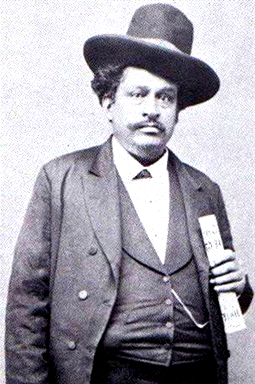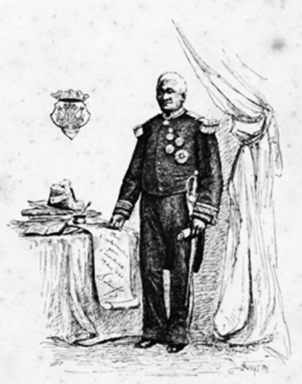"The Liberal Schism and the Return of Salomon" by the Island Luminous Editorial Board
Shortly after Septimus Rameau was killed, the revolution’s leaders, Pierre-Thémas Boisrond-Canal and Florvil Hyppolite arrived in Port-au-Prince. Canal was made provisional president without any consideration given to other potential candidates, such as Salnave’s old supporter, Nord Alexis, Boyer’s grandson, Boyer-Bazelais, or Lysius Salomon, who had served under Soulouque but been in exile since 1859. All these men had political aspiration. And no sooner was Boisrond-Canal president than they made their ambitions known. First Nord Alexis announced that the north would secede. The new president mobilized an army to stop him. But Alexis had escaped by the time it arrived.
Later that same year, crowds in Port-au-Prince welcomed back Salmon. Boisrond-Canal met with Salmon and demanded that he return into exile. Salomon agreed. And he would patiently wait for the opportune time to pursue power.
Boisrond-Canal was a mulatto. And he claimed that he was a liberal and not a nationalist. Yet the liberals did not trust him, even when he chased away the black nationalists, Nord Alexis and Lysius Salomon. Led by Boyer-Bazelais, the liberals in the Senate denounced Boisrond-Canal as a faux-liberal. Hence, in an ironic twist, Boisrond-Canal had no choice but to turn to Salomon’s partisans to help him govern the nation.
Now convinced that Boisrond-Canal would hand the nation over to Salomon, Boyer-Bazelais and his supporters, Edmond Paul and Hannibal Price, mobilized a small army to overthrow him. Salmon’s partisans rushed to Boisrond-Canal’s side to protect him. But when the war escalated, both Boisrond-Canal and Boyer-Bazelais had to escape into exile. Salomon’s men outnumbered the liberals. And in 1879, his lieutenant, Richelieu Duperval, marched into Port-au-Prince and put an end to the war. Duperval sent word to Haiti’s rightful president to return. The man he summoned, however, was not Boisrond-Canal. It was Salomon.

